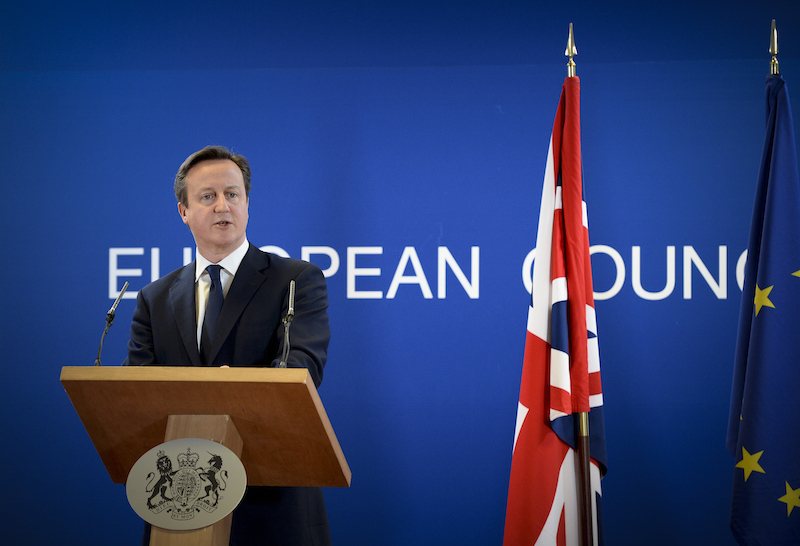Britons are set to vote next week (June 23) on whether the UK should stay or remain in the EU. For this week’s Editors’ Forum, we asked our fellow Program Editors at NAOC the following: in or out?
A Case to Stay
Usman Javed, Contributor, Society, Culture, and International Relations
Britain’s Membership in the EU club undoubtedly comes with its benefits. British citizens can live and work in the country of their choice. Businesses enjoy access to a single market economy of 28 member states. Scientists and researchers receive millions in research funds from the EU. Students can take part in the Erasmus exchange programme. And by virtue of being a prominent member of the world’s largest economy, Britain enjoys a strong international position.
Since there’s no precedent for a country leaving the EU, it’s impossible to predict what the exact consequences would be. But when has such a trivial detail ever stopped politicians, pundits and journalists from making a persuasive case? The arguments go from one extreme, claiming the consequences of leaving would be disastrous for both Britain and the EU, to the opposite, suggesting each would be better off without the other.
On Brexit, the question is not one of survival, but of improvement. Given the lack of a clearly defined alternative to Britain’s current EU membership, improvement would be unlikely in the case of a split.
If Britain were to leave the EU, it would require determining what the relationship between the two would be thereafter. A re-negotiation of past EU trade deals with countries worldwide would also be necessary, but to replace all of them with swift and favourable alternatives would be impossible. These agreements require years of negotiation and political will to conclude and enforce, and given the likelihood of resistant EU member states and British negotiators’ lack of technical knowledge (the last time Britain had specialist trade negotiators was 1973), this process would be even lengthier.
If Brexit became reality, UK policy-makers would go through a long period of uncertainty over Britain’s relation with Europe. Its economy would suffer: uncertainty would discourage foreign direct investment, currency volatility would raise the cost of doing business, and unclear labour and competition regulations would lead to the loss of jobs and contracts. And the longer there’s doubt, the greater the British economy will be harmed. Rather than being a step forward, Brexit would force Britain to spend time and resources on reaching a point it’s already at.
Bremain!
Adam Feldman, Program Editor, Lex et Orbis
Should the UK leave or remain in the EU? Britons will have a chance to answer this question on the June 23 referendum.
The EU is a political and economic partnership of 28 European countries that operates as a single sphere, allowing the free flow of goods and people. It has its own currency, parliament, and the capacity to set binding regulations.
But many sceptics see the EU as an overpowering body. David Cameron recently negotiated a special status for the UK that will come into effect should the outcome of the vote be to stay. These provisions would give the UK greater autonomy, especially over matters such as immigration.
Public opinion is split on the referendum. Just over half prefer to leave, with a desire to keep the pound, protect the city of London, reclaim Britain’s lost sovereignty, and clamp down on migration and the transfer of child benefits abroad. Polling numbers show strong support for leaving among older and poorer segments of the British population.
Remainers feel the benefits of EU membership outweigh the costs. Domestic businesses are able to export their goods easier while young and educated migrant labour fuel economic growth. Those in “camp remain” believe, and rightly so, Britain would be far more influential as part of a 28-country union rather than going solo.
Given its loss of the substantive economic debate on Brexit, “camp leave” has appealed to xenophobic and nativist attitudes that are potent in dire economic times. Camp remain, in contrast, must keep the debate centred on the economic perils of Brexit. Youth, who favour staying in large part, must show up on referendum day. The stakes are too high and the margins too close to stay at home.
Britain, don’t Leave!
Aishwarya Sahai, Research Analyst
The EU is an economic and political partnership, made up of 28 European states, created after the Second World War. At the time of its creation, it was a landmark organization. After hundreds of years of war and economic upheaval, Europe bore some semblance of unity.
The question now stands: should Britain remain a part of the EU? I say yes. Critics argue the EU has held Britain back economically, imposing too many rules on businesses that hurt their profit margins. Those leaning toward a “no” vote argue being the part of the EU makes it too easy for migrants to enter the state, and want to re-assert control over British borders.
I stand by the “yes” vote because the free movement of people and immigration is economically and socially beneficial to any country. A diverse economy is necessary for Britain to thrive in the global market, and remaining in the EU will allow for an easier flow of capital, which give companies greater ease in working abroad.
Yet what’s most important is the EU’s aim of creating economic interdependency and cooperation between European states. Given this time of global economic uncertainty, Britain would be wise to work closely with its neighbours. Unity in this time of uncertainty would be the best way forward.
In is better than out.
Andi Asimetaj, Program Editor, Canada’s NATO
When PM David Cameron promised to hold a referendum on Britain’s EU membership if he was elected in 2015, he said, “It is time for the British people to have their say. It is time to settle this European question in British politics.”
Britain has been flirting with a split from the EU for quite some time, though it poses many economic implications.
The UK’s leaving the European Union would be a disadvantage for trade and investment. As a single market, the EU bars tariffs on imports and exports between member states. The UK’s departure from the EU would create an economic shock and slow the rate of economic growth. The country’s status as a global financial centre, having been up to now a gateway into the EU, would be at risk. The economic consequences of breaking from the EU are not worth it.
It’s Complicated, but Stay.
Natasha Dobrijevic, Program Editor, Expanding Community
The central issues to the Brexit debate are immigration and the economy. On the immigration side, the worry is the number of Eastern European immigrants that have entered the UK since 2004. Pro-Brexit campaigners argue that the strain on housing and social services is too high and Britain should have the right to set its own laws on who should cross its borders.
This is a weak argument at best. Immigration has, in fact, had a net positive effect on the British economy. Moreover, the new concessions Cameron secured during the latest renegotiation of Britain’s EU membership would, no doubt, slow the flow of immigration, as newcomers would receive lower child benefits.
The economy, too would suffer if Britain were to leave. It would have to renegotiate existing deals between the EU and external countries, along with setting up a deal with the EU or bilateral ones with its individual members. True, pro-Brexit optimists believe that Britain can establish a relationship with the EU akin to that of Norway. But the possibility of such an “amicable divorce” is unlikely.
Rationally, staying in the EU would better serve Britain’s interests. The problem, however, is voters don’t always act rationally. The possibility of Brexit is real.
Photo: PM David Cameron at European Council (2014) by Number 10 via Flickr. Licensed under CC BY-NC-ND.
Disclaimer: Any views or opinions expressed in articles are solely those of the authors and do not necessarily represent the views of the NATO Association of Canada.




